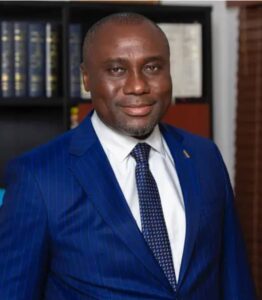
President Akufo-Addo
Parents and guardians of final year students writing this year’s West Africa Senior Secondary School Certificate Examination (WASSCE) can heave a sigh of relief after government, for the first time in the nation’s history, has decided to absorb the examination fees of the 313,837 SHS 3 students who will sit for the exams.
This was disclosed by President Nana Addo Dankwa Akufo-Addo yesterday when he addressed the nation on Ghana’s enhanced response to the coronavirus pandemic.
According to the President, GH¢75.4 million will be spent on this.
“These SHS 3 students, also referred to by some as the ‘Akufo-Addo graduates’, are the first group of beneficiaries of Government’s Free Senior High School policy to sit the WASSCE exams. 1.2 million children, the highest such enrolment in our nation’s history, because of this policy, are currently in senior high schools.
“Let us pause for a moment to consider what would have happened to the 400,000 more students, who have entered Senior High School between 2017 and 2019, without this policy in place,” the President said.
Students safe
The President further assured parents and guardians of the 800,000 students, teachers and non-teaching staff who are returning to school that the government has already put in place adequate measures to protect their lives.
“I will be the last person to put the lives of the ‘Akufo-Addo graduates’ at risk. It bears repeating that they must all adhere strictly to enhanced personal hygiene and social distancing protocols, regularly wash their hands with soap under running water, refrain from shaking hands, and wear masks to protect themselves and others. These rules apply to all of us,” he said.
Government is also making available 350 buses and 840 pickup vehicles to senior high schools that did not receive vehicles in 2016, the President said.
High recovery rate
With regards to the 10,473 Covid-19 positive cases recoveries, President Akufo-Addo explained that it is due to the new World Health Organisation (WHO) guidelines adopted by the country. The guidelines were published by WHO’s Clinical Management of COVID-19 Interim Guidance “as part of the clinical care pathway of a COVID-19 patient.”
He said the new guidelines, adopted by other countries in the European Union, suggest that “asymptomatic patients, i.e. those who have tested positive for the virus, but are not exhibiting any symptoms after fourteen 14 days, ‘are not likely to be infectious, and, therefore, are unlikely to be able to transmit the virus to another person’.”
“After three weeks of analysing and studying this update and recommendation, and situating it in the Ghanaian context, in line with the admonition by WHO to Member States, this new patient discharge/recovery policy has now been adopted by Ghana,” President Akufo-Addo stated.
He said that “at the outset of the pandemic, the scientific community and the World Health Organisation (WHO), on 12th January, 2020, recommended two main criteria for declaring someone who has tested positive as having recovered from the disease. The first is that you no longer have symptoms, and the second is that you are no longer capable of infecting others.”
“Initially, the scientific thinking was that, as long you continue to test positive, you are capable of infecting others. Hence, the requirement for the two consecutive, negative tests before you are declared as having recovered.
This was the science that informed the guidelines that Ghana has, so far, followed. However, there is now new evidence which states that, after 10 to 14 days, a person, with no symptoms, is unlikely to transmit the virus to others, even if the person continues to test positive,” he added.
The President reiterated the fact that the country’s approach to dealing with the virus, “will be informed by the evolving science and data.”
He continued to admonish Ghanaians to adhere to all the safety protocols in fighting the pandemic.
Source: Daily Statesman








